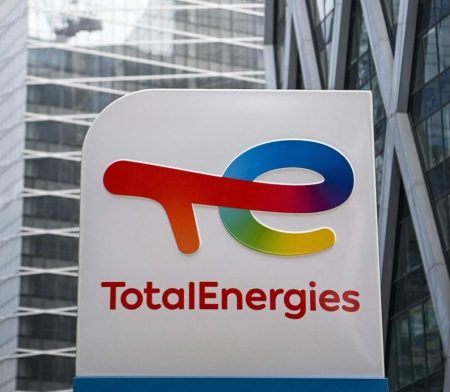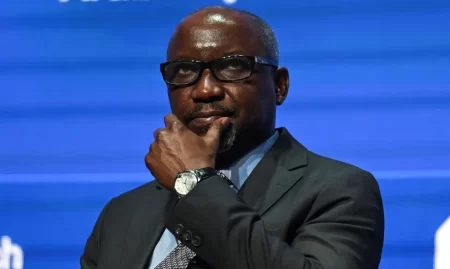
06 April 2014, Abuja – The Gross Domestic Product (GDP) rebased figures which will be released today is coming after a 24-year wait as the last rebasing exercise was done in 1990. Though it was meant to be done again in 2000 but was shelved due to some “strategic economic considerations”, people familiar with the strategy said.
THISDAY gathered that the exercise was shelved in 2000 in order to pursue debt relief from the Paris Club and multilateral lenders. The thinking of the economic team then was that a revised GDP for the country would have pushed the economy into the category of the medium income economies which would have made the country forfeit its eligibility for access to aid and grants from international organisations such as the International Monetary Fund (IMF) and the African Development Bank (AfDB), as well as debt relief or forgiveness which was being considered at the time by the G8 group of industrilised nations.
Nigeria is currently classified as low income economy, which it will vacate today with the new rebased figures. With the rebased nominal GDP, which will be announced today, the size of the Nigerian economy in terms of GDP is put between $400 billion and $432 billion, and has now displaced that of South Africa with a GDP of $370.3 billion at the end of 2013.
Rebasing is defined by the United Nations as the “process of replacing present price structure (base year) to compile volume measures of GDP with a new or more recent base year.” While nominal GDP, which has its uses, is the sum value of all produced goods and services at current prices, real GDP is more widely used and is slightly different as it’s the sum value of all produced goods and services at constant prices and is useful for showing how the economy changes in size and – with some further manipulation – how average living standards change over time.
The new base year for arriving at new rebased nominal GDP was 2010 and it was based on the latest system of national accounts 2008 from 1993 previously; as well as the international standard of industrial classification 4.0 from the previous 3.1. Also, the list of activities captured under the new standard increased to 46 from 33 previously.
The strategy of delaying the rebasing worked as Obasanjo administration’s pursuit of debt relief was successful. Nigeria got a discounted offer to pay $12 billion within one year instead of $30 billion with interest and compound to be paid in 33 years. Nigeria paid off the debt and today enjoys one of the lowest debt to GDP Ratios. Since that debt relief, Nigeria’s GDP growth has been one of the highest in Africa and the world averaging 7 per cent per year. The Finance Minister then was Ngozi Okonjo – Iweala and she is today overseeing the new figures making Nigeria Africa’s largest economy. South Africa, Ghana and Zambia are among african nations who recently rebased their GDP.
Though the rebasing exercise has got some divergent views on its merit or otherwise, the exercise is desirable for several reasons, according to experts and analysts, including for capturing the structural changes in the economy and thus for reaching near to truth about data.
But the critical question often asked is how often the base period should be changed.
Practices in this respect vary considerably, with some countries keeping the same base period for as many as 10 years or 5 years, and some changing the base period every year. It is desirable to change base periods frequently, especially in times of large changes in relative prices and rapid economic development.
In an article entitled “Nigeria’s economy is about to achieve global status,” Razia Khan, Head of Africa Research at Standard Chartered Bank, London, submitted that the impact of dramatic growth in telecoms, banking and entertainment, especially music and the Nollywood film industry might have been downplayed, thereby highlighting the need for the exercise. She thinks that growth in Nigeria needs to be made meaningful and prosperity needs to be shared more evenly, as there are high expectations that the year 2014 will go down as a milestone in Nigeria’s history, the moment the economy achieves global scale.
According to some estimates, Nigeria may record an approximate 40% leap in nominal GDP to over $400bn, putting it ahead of South Africa. South Africa’s nominal GDP is currently put at $384bn.
In addition, globally, the exercise would move the Nigerian economy from 36th in the world to 28th, displacing Thailand. However, the country’s real rate of growth may decline to an average of 5% from 7%.
There are enormous benefits since the rebasing will throw up sectors which were hithereto not there and unaccounted for. This according to analysts will attract investors in such sectors thereby promoting growth in the long run.
It is also being projected that the exercise will be mixed for Nigeria’s fiscal stance. Though it will improve the debt-to-GDP ratio, currently less than 20 per cent, it will expose a weaker tax base.
“The impact of a rebasing would likely have a positive impact on perceptions. This would come at a time when most investors are fairly downbeat on South Africa, because of its high combined fiscal and current account deficit,” said London-based economist for CSL Stockbrokers, Alan Cameron.
He said: “A revision to the base year would improve Nigeria’s budget deficit and debt ratios, as well the relative size of the import burden,” adding that it will “expose the weakness of a tax net that is already small and would reduce the relative size of the current account surplus, which has been shrinking anyway.”
For Ecobank’s economist, Gaimin Nonyane, the rebasing exercise will result in an increase in the country’s market size, but it is likely to lead to a slower rate of real GDP growth from its current rate of seven per cent in the past five years.”
“Fixed income investors will probably not pay much attention to the GDP dynamics,” said Emerging Market strategist at Standard Bank, Samir Gadio.
“The implication is that GDP per capita will subsequently increase making Nigeria a more attractive investment case and potentially boosting consumer stocks,” he said.
For the chief executive of Financial Derivatives Company, Birsmack Rewane, the exercise is a move from reality to vanity, that Nigerians will wake up on Monday morning to read that the country’s GDP is the largest in Africa without anything changing positively for them.
“Nigerians will still buy petrol at the same price, they will still have the same amount of money in their pockets, electricity is not going to improve on Monday morning. So the exercise is a journey from reality to vanity,” he said, pointing out that GDP does measure output only and not revenue.
In its latest report titled: “Big Revisions in Nigeria,” Renaissance Capital Limited (RenCap), an investment and financial advisory firm however pointed out that improving the measurement of the GDP does not raise monthly wages nor does it make Nigeria better off in any obvious material way.
But the RenCap report noted: “Under the rebased figures, Nigerians will still have lower per capita GDP ($2,400) than Egypt after three hard years of political instability, and far less than South Africa ($6,800). This will not be easy to explain to the population.
“It could also make life hard for us economists, as we will have to compare a rebased Nigeria with other countries that may not have rebased their data.
“The important fact to bear in mind is that GDP is only being recorded better. Rebasing does not mean Nigerians are better off – it just means they are better off than official statistics previously indicated.”
Furthermore, the report stated that the exercise could lead to a downward revision of Nigeria’s growth rate, saying that instead of about seven per cent annual growth over the previous decade, the higher GDP base may reduce growth to closer between five and six per cent.
The rebased DGP numbers are also expected to expose the country’s huge untapped tax base, especially the informal and non- oil sector that are hardly captured.
The Federal Inland Revenue Service (FIRS) generated N4.8 trillion tax revenue in 2013, about 17.18 per cent below its N5.80 trillion target. It is projected that FIRS collections will improve after the rebasing.
South Africa’s 2009 re-basing exercise, which changed the base year from 2000 to 2005, led to an increase of 2.1 per cent in nominal GDP in the new benchmark year.
This ditto for Ghana when in 2010 it changed its base year from 1993 to 2006, generating an increase of some 60.3 per cent in the 2006 GDP figure.
Malaysia, which rebased from 2000 to 2005, also reported increase of 3.2 per cent in its nominal GDP estimate for 2011.



